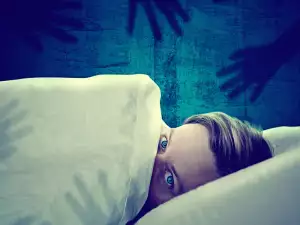How long have we had dreams?
Since there are people. The earliest concrete evidence is dating back before 3000 BC. Then appears the Gilgamesh Epic with the transmission of dreams.
Prior to 4000 Egypt was created a book to decipher the messages of the gods, were it considered dreams. In ancient Rome more impressive dreams were considered by the Senate. Their modes of interpretation were both priests and sorcerers. Descartes was the first to enter the dream world of science by beginning research on the dreams and trying to find an explanation which led to the emergence of numerous books that also give rise to the emergence of a deeper psychology.

Who dreams?
Everyone and every night, even several times a night. With this feature on average three out of five have no memory of sleeping.
Where do dreams originate?
According to latest research, probably in the interior of the middle of the brain, the same place, which is responsible for our emotions during the day.
When we dream?
There is a fast and slow sleep, which in turn is divided into superficial and deep sleep. On the basis of brain activity we differ in different phases of sleep. After falling asleep, when one no longer hears, sees and feels the outside world, it deepens the sleep and brain activity is characterized by increasingly slow waves. From the surface goes into a deep sleep, and when the brain begins to become active it has the same pattern in order to wake. During this phase (rapid eye movement) eyes start to move around, like the state of alertness. It is believed that the eyes follow the pictures in this sleep stage.
Why do we dream?
"To forget, " so was one theory, the brain uses sleep to discard useless or disturbing memories. Unlike the targeted understanding (in waking) while dreaming, the brain copes with the huge volume of impressions gained during the day.
During sleep the brain processes what is dominated by the "awareness" based on information received from the senses. What's more there are complex processes, one is mapping where one is able to remember their dreams, to evaluate, make decisions and carry them to sleep.
There is also a theory that the dream was mainly due to physiological reasons, trouble digesting, cardiovascular illness, pain and the temperature of the room in which one sleeps.
What people dream?
One of the most common images and symbols in dreams are: sexuality, teeth, death, water, house, friends, cars, hair, dogs babies. They can mean different feelings, each person can create their own symbols, according to domicile objects with which one is surrounded.
How can we rely on symbols of dreams?

The importance of symbols in dreams is very personal and should not be generalized. Contemporary life, cultural, social and psychological context, and personal attitude of the people play an important role in the interpretation of dreams. The symbol holds another important quality of connecting one self with the world.
Modern methods of interpretation of dreams can be fully implemented only with the help of the dreamer.









